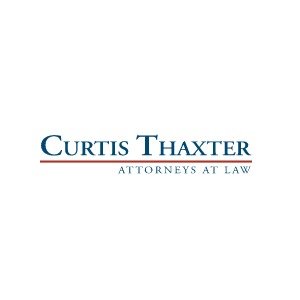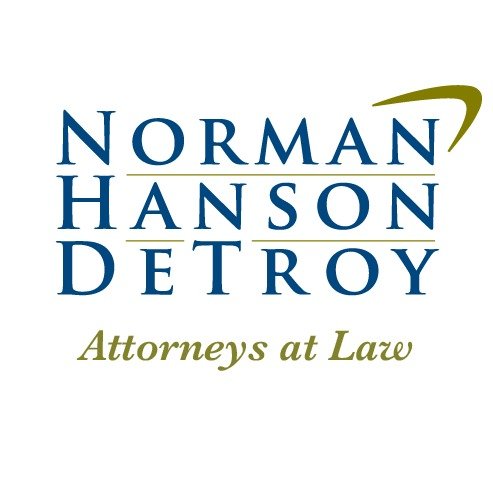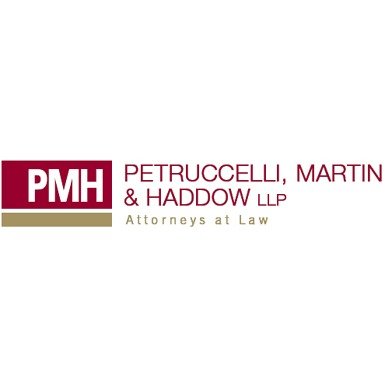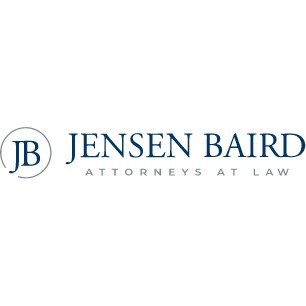Best Nonprofit & Charitable Organizations Lawyers in Maine
Share your needs with us, get contacted by law firms.
Free. Takes 2 min.
Or refine your search by selecting a city:
List of the best lawyers in Maine, United States
About Nonprofit & Charitable Organizations Law in Maine, United States
Nonprofit and charitable organizations play an essential role in Maine, providing vital services, supporting communities, and promoting social good. These entities operate under a specialized set of legal rules that distinguish them from for-profit businesses. In Maine, nonprofits include a wide range of organizations such as charitable foundations, religious institutions, educational groups, social clubs, and advocacy groups. Nonprofit status generally means that any earnings are reinvested into the organization's mission rather than distributed to owners or shareholders. To operate legally in Maine, nonprofits must comply with both state and federal regulations, from initial formation to ongoing compliance and reporting.
Why You May Need a Lawyer
Navigating the complexities of nonprofit law in Maine can be challenging. Legal assistance can help to ensure your organization is properly established, operated, and maintained. Some common situations where you may need the guidance of a lawyer include:
- Forming a new nonprofit organization and drafting articles of incorporation and bylaws
- Applying for federal tax-exempt status (501(c)(3) or other designations)
- Ensuring ongoing compliance with state and federal regulations, including annual filings
- Board governance issues, such as conflicts of interest or fiduciary duties
- Contracts, leases, or fundraising agreements
- Handling employment matters within the nonprofit
- Dealing with audits or investigations by the IRS or Maine state agencies
- Mergers, dissolutions, or restructuring of nonprofit entities
- Compliance with charitable solicitation and fundraising laws
- Advising on risk management and liability issues
A lawyer specializing in nonprofit law can help avoid costly mistakes, ensure compliance, and support the nonprofit’s mission.
Local Laws Overview
Nonprofit organizations in Maine are regulated by both state and federal laws. At the state level, the Maine Nonprofit Corporation Act governs the formation, operation, and dissolution of nonprofit corporations. To become a nonprofit in Maine, an organization must file articles of incorporation with the Maine Secretary of State and draft bylaws that regulate the organization's internal operations. Nonprofits that plan to seek tax-exempt status must also comply with Internal Revenue Service (IRS) requirements.
Maine also has laws related to fundraising, charitable solicitation, financial reporting, and governance which are overseen by the Maine Office of the Attorney General. Requirements may include annual reports, conflict-of-interest policies, financial transparency, and restrictions on certain types of transactions. Nonprofits must also pay attention to other regulations, such as employment laws and rules specific to their type of organization (for example, educational or religious bodies).
Frequently Asked Questions
What types of nonprofit organizations can be formed in Maine?
Maine allows a variety of nonprofit categories, including charitable, educational, religious, literary, and scientific organizations, as well as social clubs and other specific types allowed under state law.
How do I form a nonprofit in Maine?
To form a nonprofit in Maine, you must file articles of incorporation with the Secretary of State, draft bylaws, appoint a board of directors, and meet other compliance requirements. Applying for federal tax-exempt status is a separate step handled through the IRS.
How does a Maine nonprofit obtain tax-exempt status?
After incorporating at the state level, the organization must apply to the IRS for recognition as a tax-exempt entity, most commonly under section 501(c)(3) of the Internal Revenue Code. Approval grants both federal and, in many cases, Maine state tax exemptions.
What are the ongoing compliance requirements for nonprofits in Maine?
Maine nonprofits must file an annual report with the Secretary of State, maintain proper corporate records, keep their IRS tax-exempt status current, and may need to file certain tax returns and fundraising reports.
Who regulates nonprofits in Maine?
State-level regulation is primarily through the Secretary of State and the Attorney General’s Office, with federal oversight for tax-exempt status handled by the IRS.
What rules apply to fundraising and charitable solicitations in Maine?
Charitable organizations that solicit donations in Maine may have to register with the Attorney General and comply with specific disclosure, reporting, and ethical fundraising requirements.
Can a Maine nonprofit pay its directors or officers?
Nonprofit directors and officers may receive compensation for their legitimate services, but payments must be reasonable and in accordance with state and federal laws. Excessive compensation or conflicts of interest are prohibited.
What happens if a nonprofit in Maine wants to dissolve?
To dissolve, the nonprofit must follow procedures under the Maine Nonprofit Corporation Act, settle debts, and distribute any remaining assets in accordance with its mission and state law. A final report may be required.
Are there special rules for certain types of nonprofits, like religious or educational organizations?
Yes, religious and educational organizations may have additional or different requirements at both the state and federal level. It is important to review laws specific to the type of nonprofit you intend to operate.
What should a nonprofit do if it receives a legal complaint or investigation notice?
Immediate consultation with an attorney is strongly recommended in these cases to protect the organization’s interests and ensure proper response in accordance with applicable laws.
Additional Resources
If you are seeking more information or guidance about nonprofit and charitable organization law in Maine, the following resources may be helpful:
- Maine Secretary of State - Bureau of Corporations, Elections and Commissions (for forming and managing nonprofit corporations)
- Maine Office of the Attorney General - Charitable Solicitations and Nonprofit Oversight Division
- Internal Revenue Service (IRS) - Nonprofit federal tax-exempt status guidance and forms
- Maine Association of Nonprofits (MANP) - Local support, education, and advocacy for Maine nonprofits
- Volunteer Lawyers Project - Legal aid for eligible organizations needing pro bono or reduced fee services
- Local public libraries and law libraries - Access to legal forms and educational materials
Next Steps
If you need legal assistance concerning a nonprofit or charitable organization in Maine, consider the following actions:
- Define your needs clearly - Is your issue related to formation, governance, compliance, contracts, tax, fundraising, or something else?
- Gather all relevant documents - Incorporation papers, bylaws, past filings, correspondence with state or federal authorities, and financial records.
- Research and contact local attorneys who specialize in nonprofit law or consult with organizations like the Maine Association of Nonprofits.
- Consider reaching out to legal aid groups if your resources are limited.
- Make a list of questions or concerns to discuss during your consultation.
Proper legal guidance can make a significant difference in the success and integrity of your nonprofit. Begin by reviewing available resources and reaching out to a qualified legal professional familiar with Maine nonprofit law.
Lawzana helps you find the best lawyers and law firms in Maine through a curated and pre-screened list of qualified legal professionals. Our platform offers rankings and detailed profiles of attorneys and law firms, allowing you to compare based on practice areas, including Nonprofit & Charitable Organizations, experience, and client feedback.
Each profile includes a description of the firm's areas of practice, client reviews, team members and partners, year of establishment, spoken languages, office locations, contact information, social media presence, and any published articles or resources. Most firms on our platform speak English and are experienced in both local and international legal matters.
Get a quote from top-rated law firms in Maine, United States — quickly, securely, and without unnecessary hassle.
Disclaimer:
The information provided on this page is for general informational purposes only and does not constitute legal advice. While we strive to ensure the accuracy and relevance of the content, legal information may change over time, and interpretations of the law can vary. You should always consult with a qualified legal professional for advice specific to your situation.
We disclaim all liability for actions taken or not taken based on the content of this page. If you believe any information is incorrect or outdated, please contact us, and we will review and update it where appropriate.
Browse nonprofit & charitable organizations law firms by city in Maine
Refine your search by selecting a city.














